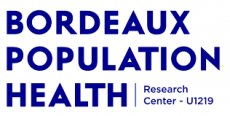Comparative effectiveness of direct oral anticoagulants versus low-molecular weight heparins for the prevention of venous thromboembolism after total hip or knee replacement: A nationwide database cohort study
Résumé
BACKGROUND: Venous thromboembolism (VTE) after total knee or hip replacement (TKR, THR) is usually prevented with low-molecular weight heparin (LMWH), and increasingly by direct oral anticoagulants (DOAC). The aim of the present study was to compare the benefit-risk and medical costs of DOAC vs. LMWH in a real-life setting. METHODS: All patients with THR or TKR in France between Jan-1st 2013 and Sep-30th 2014, discharged to home, were identified and followed-up for 3 months in the French nationwide claims database, SNDS. DOAC users were 1:1 matched with LWMH users on gender, age and propensity score. Relative risks (RR) of hospitalized VTE, hospitalized bleeding and death were estimated using quasi-Poisson models. Medical costs were calculated according to the societal perspective, including total cost for outpatient claims and national DRG costs for hospitalisations. RESULTS: Most DOAC users (>/= 98.8%) were matched to a LMWH patient. For the 63,238 matched THR patients, the 3-month absolute risk of VTE was 0.9 per thousand with DOAC and 2.5 per thousand with LMWH (RR = 0.35 [0.23 to 0.54]), of bleeding 1.8 per thousand and 2.1 per thousand (0.88 [0.62-1.25]), death 0.7 per thousand and 1.1 per thousand (0.68 [0.40-1.15]). For the 31,440 matched TKR patients, risks were 1.6 per thousand and 2.3 per thousand (0.69 [0.42-1.16]) for VTE, 2.4 per thousand and 3.8 per thousand (0.64 [0.43 to 0.97]) for bleeding, and 0.6 per thousand and 0.8 per thousand (0.69 [0.30-1.62]) for all-cause death. Mean medical costs were 28% and 21% lower with DOAC than LMWH for THR and TKR, respectively. This nationwide study found a very low risk of VTE, hospitalized bleeding and death after THR or TKR discharge in patients with VTE prevention in real-life setting, with better benefit-risk profiles of DOAC compared to LMWH, and associated cost savings.
Origine : Fichiers produits par l'(les) auteur(s)

